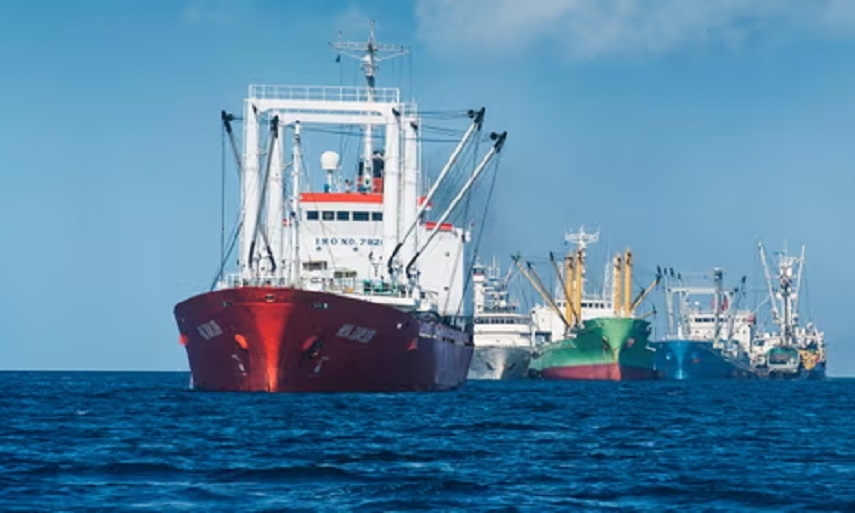India, France say global ocean treaty should come into effect at earliest
| Date :13-Feb-2025 |

NEW DELHI :
INDIA and France on Wednesday said the high seas treaty, a global pact for conservation and sustainable use of marine biological diversity in areas beyond national jurisdiction, should come into effect at the earliest.
During a meeting with French President Emmanuel Macron in Paris, Prime Minister Narendra Modi also offered India’s support to France for the United Nations Oceans Conference (UNOC-3), to be held in Nice in June.
UNOC-3 is an important milestone in international efforts for the conservation and sustainable use of oceans, they said.
“France and India recognise the importance of the Agreement on the Conservation and Sustainable Use of Marine Biological Diversity Beyond Areas of Natural Jurisdiction (BBNJ Agreement) as one of the pillars of inclusive and holistic international ocean governance,” according to a joint statement.
Having already signed the treaty, both nations said it should come into effect at the earliest.
The “high seas”, also called “international waters”, refer to areas beyond any country’s national waters, exclusive economic zone, and jurisdiction. No single country controls these waters, and all nations have the right to use them for navigation, fishing, research and other activities without interference.
Although the high seas cover more than 60 per cent of the ocean, only 1.2 per cent is currently protected. Countries adopted the high seas treaty or BBNJ Agreement in June 2023 to safeguard marine life. The treaty opened for signatures on September 20, 2023, allowing countries to express their intent to ratify and formally accept the agreement.
The treaty will take effect once 60 countries sign and ratify it. India and France also reaffirmed their commitment to jointly addressing environmental crises and challenges, including climate change, and promoting sustainable lifestyles.
Both Modi and Macron reiterated their commitment to the principles of the Paris Pact for People and the Planet, which aims to reform the international financing system to help vulnerable countries eradicate poverty and protect the planet.
The Paris Pact for People and the Planet, established at the Summit for a New Global Financing Pact hosted by Macron in June 2023, seeks to renew the global financial system and increase efforts to close the sustainable development goals (SDG) financing gap.
India, France intend to jointly develop advanced nuclear reactors
NEW DELHI
INDIA and France on Wednesday expressed an intent to jointly develop modern nuclear reactors, emphasising that nuclear power was crucial for energy security and transition to a low-carbon economy.
The two countries signed a letter of intent on Small Modular Reactors (SMRs) and Advanced Modular Reactors (AMRs), according to a joint statement issued after Prime Minister Narendra Modi met French President Emmanuel Macron in Paris.
“Prime Minister Modi and President Macron stressed that nuclear energy is an essential part of the energy mix for strengthening energy security and transitioning towards a low-carbon economy,” according to the statement.
SMRs are compact nuclear fission reactors that can be manufactured in factories and then installed elsewhere.
They typically have a smaller capacity than conventional nuclear reactors.
The two leaders also acknowledged the strong civil nuclear ties between India and France and efforts in cooperation on the peaceful uses of nuclear energy, notably in relation to the Jaitapur Nuclear Power Project.



